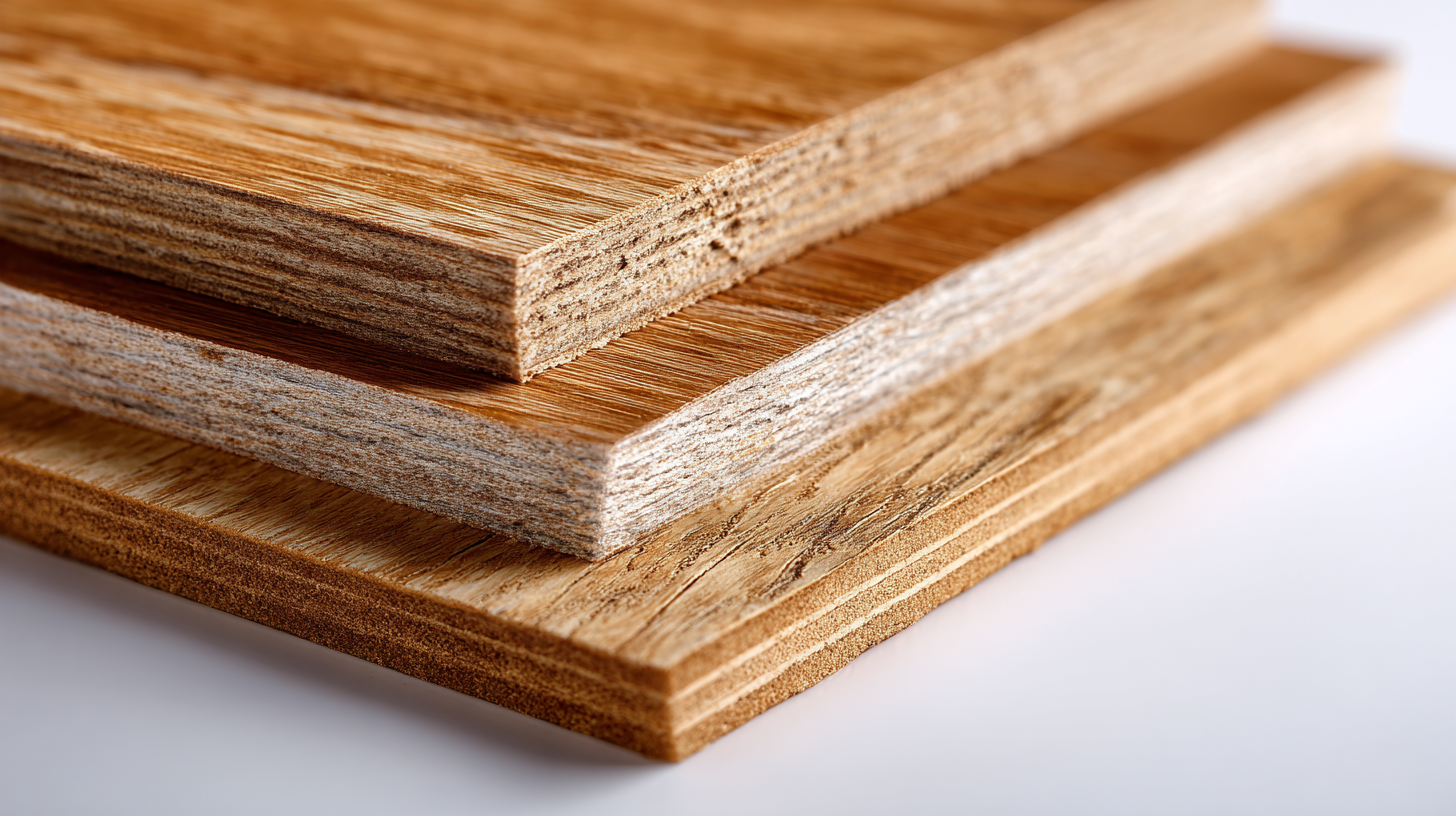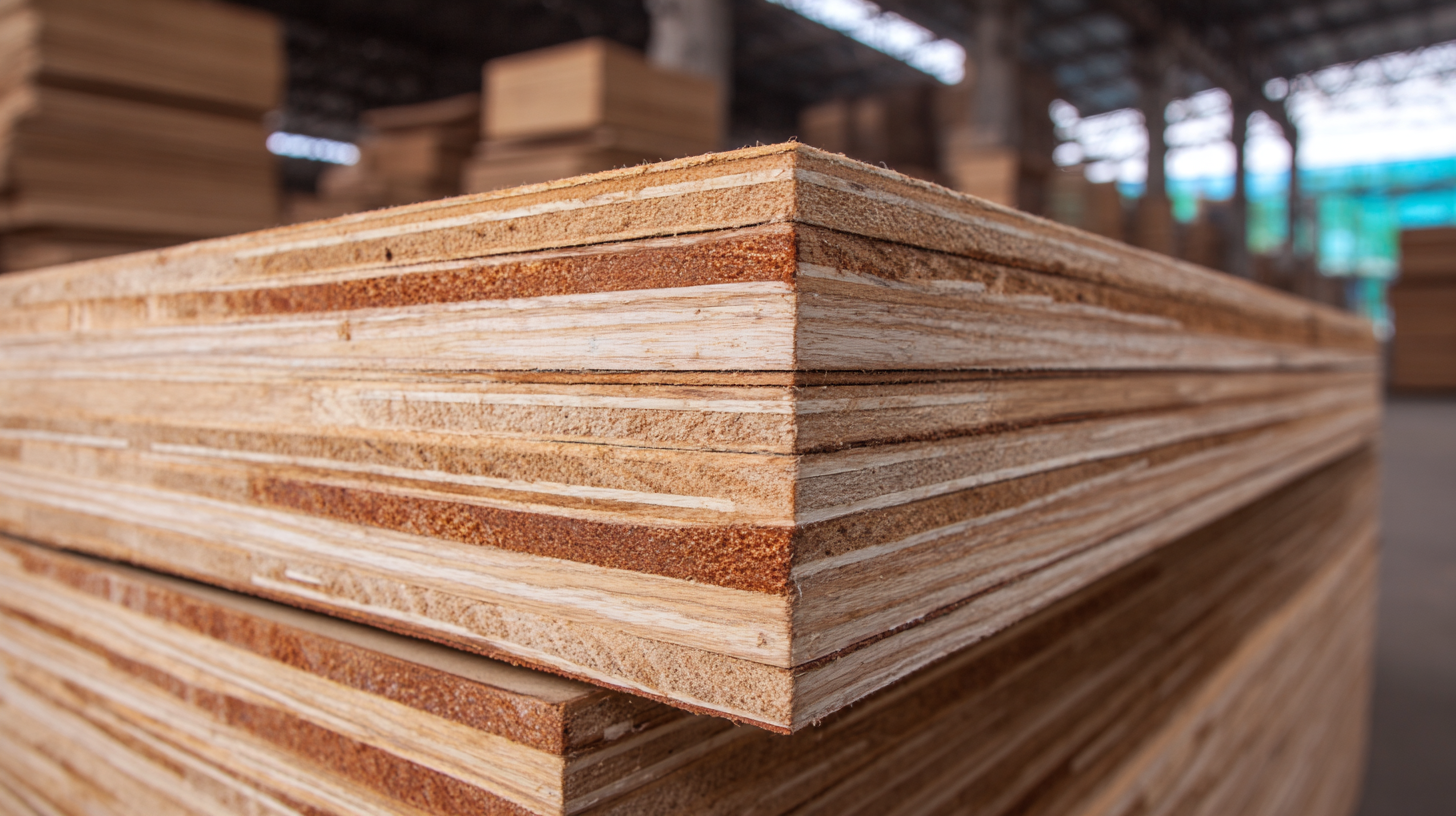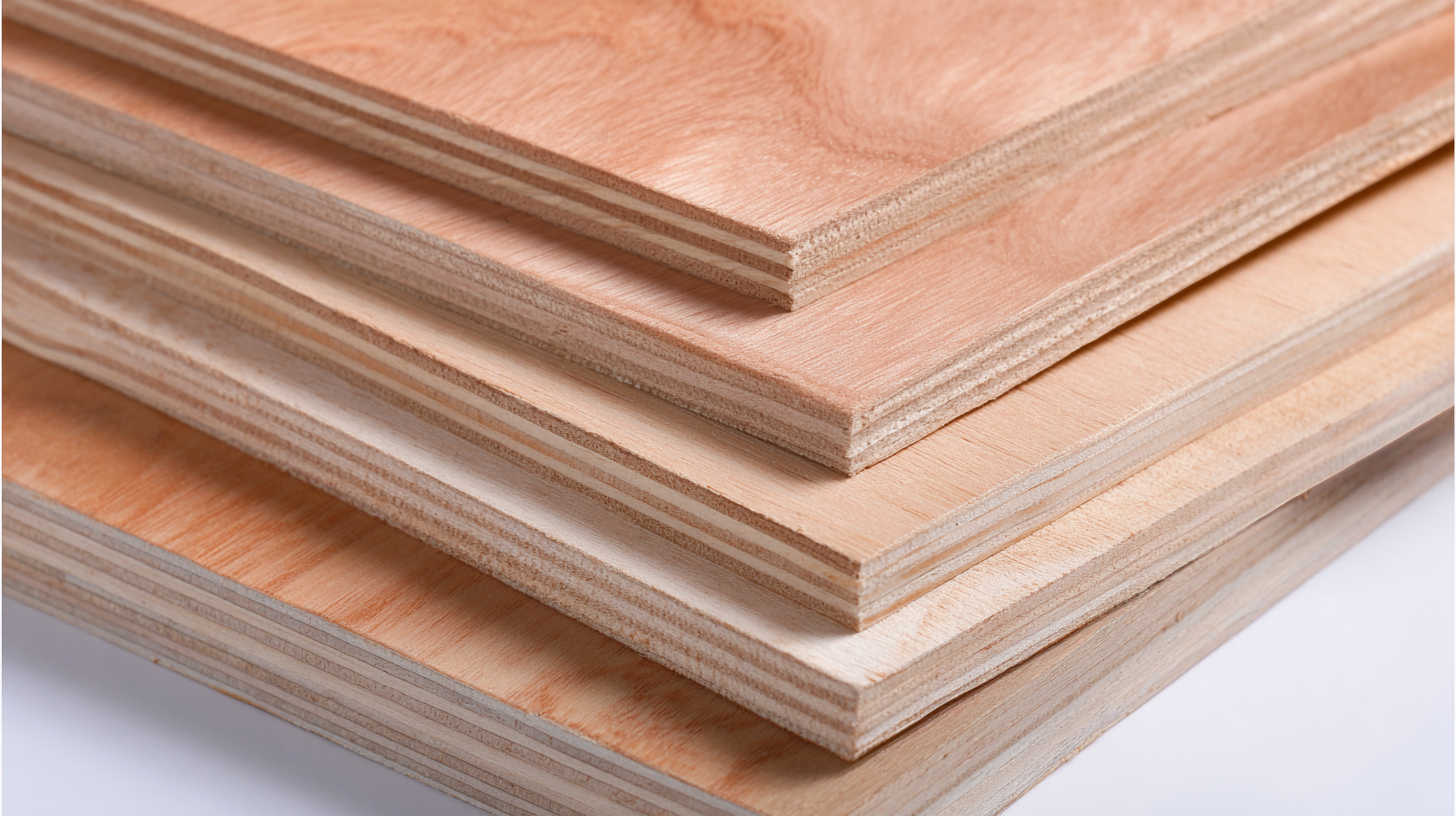Leave Your Message
-
Whatsapp
-
Whatsapp
In recent years, the global market for Plywood Laminated Board has experienced remarkable growth, driven by the increasing demand for sustainable and high-quality materials in construction and furniture manufacturing. According to a report by Market Research Future, the global plywood market is projected to reach a valuation of approximately $54 billion by 2027, with plywood laminated boards playing a crucial role due to their superior strength, durability, and versatility. The technological advancements in China’s manufacturing processes have positioned the country as a leader in producing world-class Plywood Laminated Boards, catering to the needs of international buyers seeking exceptional quality and performance. As the construction industry evolves, the future of Plywood Laminated Boards looks promising, with an emphasis on innovative designs and eco-friendly solutions that meet the demands of modern architecture and interior design.

When it comes to plywood laminated boards, quality is paramount. The craftsmanship and materials used play a crucial role in determining the strength, durability, and visual appeal of these products. High-quality plywood boards are essential for various applications, ranging from furniture making to construction projects. They not only provide structural integrity but also enhance the aesthetic value of the final product. This is particularly important for global buyers who seek reliable and visually appealing solutions for their projects.
Chinese manufacturers have established a reputation for excellence in producing plywood laminated boards. Utilizing cutting-edge technology and stringent quality control measures, they ensure that their products meet international standards. This commitment to quality enables them to cater to a diverse range of markets worldwide.
For buyers, understanding the significance of quality in plywood laminated boards means recognizing the value of investing in products that deliver longevity and performance, ultimately leading to greater satisfaction and reduced costs in the long run. As global demand increases, prioritizing quality will remain essential for both manufacturers and consumers in the plywood industry.
When considering a plywood manufacturer, it is essential to evaluate several key factors that can influence both the quality of the product and the overall satisfaction with your purchase. First and foremost, assess the manufacturer's reputation and experience in the market. A well-established company with a solid track record in plywood production often indicates reliability and excellence in crafting high-quality laminated boards. Look for certifications and industry standards that the manufacturer adheres to, which can provide assurance of their commitment to quality and safety.
Another important factor is the range of applications they cater to. For instance, manufacturers focusing on marine plywood may have different production techniques and quality controls compared to those specializing in birch plywood for furniture making. Understanding the specific use case for the plywood will help in identifying a manufacturer that can meet those precise needs.
**Tips:**
- Always request samples to assess the product quality firsthand before making any bulk orders.
- Inquire about sustainability practices, as manufacturers committed to environmental stewardship often produce high-quality boards while also contributing to a healthier planet. Paying attention to these aspects can greatly enhance your purchasing decision.
As global demand for high-quality plywood laminated boards rises, Chinese manufacturers have stepped up to the plate, showcasing unmatched craftsmanship and innovation. Among them, five key players stand out as industry leaders, each contributing unique strengths that elevate the standard of plywood products worldwide. Companies like Qingdao Tiansheng Wood, Fenglin Group, and others have invested heavily in state-of-the-art technology, ensuring that their boards meet international quality and sustainability standards.
For buyers seeking top-notch plywood, it's essential to consider a few tips. First, always check for certification from recognized quality assurance bodies. This ensures that the product adheres to safety and environmental regulations. Second, don't hesitate to ask for samples before making bulk purchases, as this gives you insight into the board's finish and durability. Lastly, staying informed about the latest trends in the plywood industry can provide valuable context when choosing manufacturers.
The competitive edge of these top Chinese manufacturers lies in their commitment to innovation and customer service. By leveraging advanced production techniques and prioritizing customer satisfaction, they not only deliver premium products but also create lasting relationships in the global market. This dual focus creates a win-win situation for both manufacturers and buyers, ensuring that everyone benefits from the high standards of Chinese plywood excellence.

In recent years, the plywood industry has witnessed significant advancements thanks to digital innovations that enhance production processes and improve quality control. According to a report by ResearchAndMarkets, the global plywood market is expected to reach a value of $75 billion by 2026, growing at a CAGR of 6.5%. This surge in demand has prompted manufacturers to adopt cutting-edge technologies such as automation, AI, and IoT to optimize operations and ensure consistent product quality.

Digital technologies enable real-time monitoring and data analytics throughout the plywood production cycle, from sourcing raw materials to final product delivery. For instance, sensors embedded in production lines can detect anomalies in wood lamination, allowing for immediate adjustments. A study published in the "Journal of Wood Science" highlighted that such innovations could reduce defects by up to 20% while improving overall production efficiency. This shift not only contributes to a higher quality of plywood but also aligns with sustainable practices by minimizing waste.
Furthermore, as global buyers increasingly demand transparency and traceability in supply chains, digital platforms are facilitating better communication and collaboration among suppliers and consumers. Enhanced tracking systems enable buyers to verify the sourcing and quality of plywood, fostering a sense of trust and confidence in products identified as "made with Chinese excellence." With these innovations at the forefront, the plywood industry is poised to meet the challenges of today, positioning itself as a leader in quality and sustainability.
When sourcing plywood laminated boards, global buyers must adhere to best practices that ensure product excellence. The first step is to conduct thorough research on suppliers. This includes checking for certifications and standards compliance, such as ISO and CE markings. These certifications are indicators of quality and reliability, ensuring that the products meet international norms. Engaging with suppliers who have a proven track record is essential for establishing trust and ensuring product consistency.
Another crucial practice is to request detailed product specifications and samples. By evaluating these samples, buyers can assess the quality of materials and craftsmanship before making bulk purchases. Additionally, it’s advisable to visit production facilities whenever possible. This firsthand experience allows buyers to witness the manufacturing process and ensure that the supplier adheres to quality control measures. Establishing clear communication and being involved throughout the production stage can significantly reduce the risk of receiving subpar products and foster long-term relationships with suppliers.
| Dimension | Value |
|---|---|
| Thickness | 18 mm |
| Length | 2440 mm |
| Width | 1220 mm |
| Weight | 30 kg/m² |
| Moisture Content | 8-12% |
| Formaldehyde Emission | E0 Grade |
| Surface Finish | Sanding |
| Application Areas | Furniture, Interior Design |
